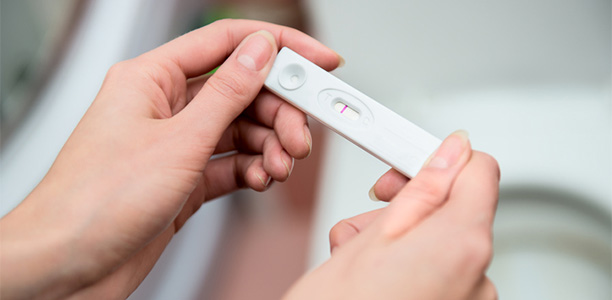The TGA has completed a review of all human chorionic gonadotropin (hCG) pregnancy self-test kits on the Australian market to ensure they meet sensitivity claims. Some devices were found not to work reliably and accurately and have either been corrected or removed from the market.
All devices remaining on the market in Australia have been shown to work reliably and accurately.
These kits rely on detecting the hCG hormone and some have claimed to be able to detect extremely low levels, as would be found in the first week after conception. Levels of hCG rise rapidly in subsequent weeks after conception and can be detected by less sensitive tests. See ‘Additional information‘ below for more detail.
After a report of three false negative results (insufficient sensitivity) of the One Step HCG urine pregnancy test from a family planning clinic, this model was tested by the TGA, shown to be insensitive, recalled and cancelled from the Australian Register of Therapeutic Goods (ARTG). In response to this, 36 point-of-care or self-test urine pregnancy test kits on the ARTG were identified and an additional two were identified on eBay. To be marketed in Australia, a urine pregnancy test kit must be included on the ARTG administered by the TGA.
The TGA contacted all sponsors to provide information on the devices. Rather than supply information, nine sponsors cancelled their ARTG entries and stopped supply. In addition, the TGA cancelled two devices for improper inclusion on the ARTG.
Samples of the remaining 27 devices were acquired and tested for whether they recognised only hCG (not other hormones), how sensitive they were to hCG and if the labelling was correct. A total of 22 out of the 27 (81%) of the test kits sampled passed testing and were shown to work reliably. The five devices that failed have been subjected to a range of regulatory actions summarised in the table below.
One product (First Response Digital from Church and Dwight) could not be tested as too many devices malfunctioned. All affected batches were recalled from pharmacies. An investigation by the sponsor revealed a manufacturing flaw, which was corrected and the corrected devices were found to pass in subsequent testing.
| Sponsor | Devices | ARTG No. | Batches | Regulatory Action |
| Genesis Biotech | PregSure digital Pregsure test strips |
236402 | 16D119-1100 16D119-0000 | Urgent recall of failed batches from pharmacies. |
| Thermo Fisher Scientific Australia | QuickVue One-Step hCG urine test kit | 199827 254033 | Failed batches were not supplied in Australia. | The TGA is considering undertaking further regulatory action. |
| Church and Dwight Australia | First Response Digital Pregnancy Test also included in First Response Test & Reassure | 231933 | SU5341 SU6207 SU6237 SU6308 SU6335 SU6196 SU6305A SU6315A. |
Routine recall of malfunctioning batches from pharmacies. Correction of manufacturing flaw. |
| Minco Import and Export | One Step Pregnancy test | 184953 | Failed batches were not supplied in Australia. | Sponsor removed device from ARTG and ceased supply. |
Additional information
Pregnancy tests are designed to tell if urine contains the hCG hormone. This hormone is produced by cells that will develop into the placenta right after a fertilised egg attaches to the wall of a woman’s uterus.
Raised levels of hCG in the urine usually (but not always as it varies from woman to woman) occur about six days after fertilisation.
Most kits detect hCG at 25 mIU/mL or roughly about the time of a missed period, but some are able to do so earlier than that. If a woman is pregnant, levels of hCG rise rapidly, doubling every two to three days. The test kits use antibodies and dyes to show pink or blue lines or symbols on a test strip. One line is a control to indicate whether the test is valid or not and the other indicates how much hCG is present. Digital tests have an electronic reader which has a display to say in words or symbols whether the woman is pregnant.
Reporting problems
Consumers and health professionals are encouraged to report problems with medical devices. Your report will contribute to the TGA’s monitoring of these products. For more information see the TGA Incident Reporting and Investigation Scheme (IRIS).
The TGA cannot give advice about an individual’s medical condition. If you are concerned about the issues with these medical devices, you are strongly encouraged to talk with a health professional.
(Source: Australian Government – Therapeutic Goods Administration)




 (3 votes, average: 3.33 out of 5)
(3 votes, average: 3.33 out of 5) 






